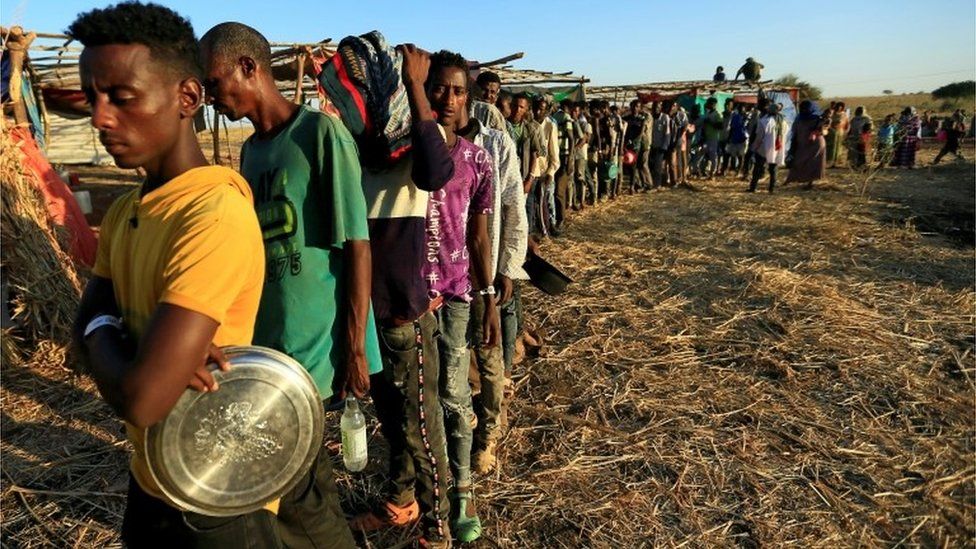Photo Credit: Getty Images
The humanitarian crisis in Tigray, a region in northern Ethiopia, has escalated since the outbreak of conflict in November 2020, leading to widespread displacement, violence, and suffering among civilians. The conflict erupted between the Ethiopian government and the Tigray People's Liberation Front (TPLF), triggering a brutal and protracted conflict that has resulted in severe humanitarian consequences. The root causes of the conflict stem from longstanding political tensions, ethnic divisions, and power struggles within Ethiopia's federal system, exacerbating grievances and grievances among different ethnic groups.
As a result of the conflict, the humanitarian situation in Tigray has deteriorated rapidly, with millions of people in need of urgent assistance. Reports of atrocities, including massacres, sexual violence, and widespread human rights abuses, have emerged, prompting international condemnation and calls for accountability. The conflict has disrupted essential services, including healthcare, education, and food distribution, leaving civilians vulnerable to hunger, disease, and displacement. The United Nations has described the situation in Tigray as a "humanitarian catastrophe" and warned of the risk of famine if immediate action is not taken to address the crisis.
The impact of the conflict in Tigray extends beyond the region itself, with ripple effects felt across the Horn of Africa region. The influx of refugees fleeing violence in Tigray has placed strain on neighboring countries, including Sudan, which has received tens of thousands of refugees seeking safety and shelter. The escalation of conflict in Tigray has also heightened regional tensions and raised concerns about the stability and security of the wider region, posing challenges to regional peace and stability.
In response to the humanitarian crisis in Tigray, the international community has mobilized efforts to provide humanitarian assistance and support to those affected by the conflict. Humanitarian organizations, including the United Nations and non-governmental organizations, have scaled up their operations to deliver emergency aid, including food, water, shelter, and medical care, to affected populations. Diplomatic efforts are underway to facilitate dialogue and negotiations between the warring parties and find a peaceful resolution to the conflict. However, significant challenges remain, including access constraints, security risks, and funding shortages, hindering the delivery of lifesaving assistance to those in need.
Addressing the humanitarian crisis in Tigray requires a concerted and coordinated response from the international community, the Ethiopian government, and other stakeholders. Immediate steps must be taken to ensure unimpeded humanitarian access to affected areas, protect civilians from violence and abuse, and hold perpetrators of atrocities accountable for their actions. In the longer term, efforts to address the underlying causes of the conflict, including political grievances and ethnic tensions, are essential for building lasting peace and stability in Ethiopia and the wider region. The humanitarian crisis in Tigray serves as a stark reminder of the urgent need for concerted action to prevent further suffering and alleviate the plight of millions of civilians caught in the crossfire of conflict.
Composed by : Bonface Musau


